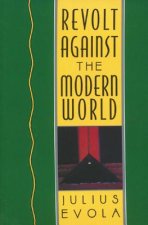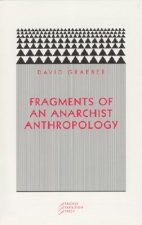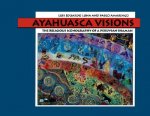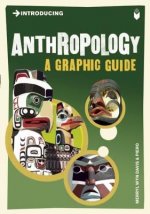
Kód: 04938775
Ethnography as Commentary
Autor Johanne Fabian
The Internet allows ethnographers to deposit the textual materials on which they base their writing in virtual archives. Electronically archived fieldwork documents can be accessed at any time by the writer, his or her readers, as ... celý popis
- Jazyk:
 Angličtina
Angličtina - Vazba: Pevná
- Počet stran: 152
Nakladatelství: Duke University Press, 2008
- Více informací o knize

2579 Kč

Skladem u dodavatele v malém množství
Odesíláme za 14-18 dnů
Potřebujete více kusů?Máte-li zájem o více kusů, prověřte, prosím, nejprve dostupnost titulu na naši zákaznické podpoře.
Přidat mezi přání
Mohlo by se vám také líbit
-

Shortcut Through Time
494 Kč -

Jigsaw
357 Kč -

Performance of Democracies
6952 Kč -

Postconventional Personality
3105 Kč
Darujte tuto knihu ještě dnes
- Objednejte knihu a zvolte Zaslat jako dárek.
- Obratem obdržíte darovací poukaz na knihu, který můžete ihned předat obdarovanému.
- Knihu zašleme na adresu obdarovaného, o nic se nestaráte.
Více informací o knize Ethnography as Commentary
Nákupem získáte 258 bodů
 Anotace knihy
Anotace knihy
The Internet allows ethnographers to deposit the textual materials on which they base their writing in virtual archives. Electronically archived fieldwork documents can be accessed at any time by the writer, his or her readers, as well as by the people studied. Johannes Fabian, a leading theorist of anthropological practice, argues that virtual archives have the potential to shift the emphasis in ethnographic writing from the monograph to commentary. In this insightful study, he returns to the recording of a conversation he had with a ritual healer in the Congolese town of Lubumbashi more than three decades ago.Fabian's transcript and translation of the exchange have been deposited on a web site (Language and Popular Culture in Africa) and in "Ethnography and Commentary" he provides a model of writing in the presence of a virtual archive. In his commentary, Fabian reconstructs his meeting with the healer Kahenga Mukonkwa Michel, in which they discussed the ritual that Kahenga performed to protect Fabian's home from burglary. He reflects on the expectations and terminology that shape his description of Kahenga's ritual and meditates on how ethnographic texts are made, considering the settings, the participants, the technologies, and the linguistic medium that influence the transcription and translation of a recording and thus fashion ethnographic knowledge.Turning more directly to Kahenga - as a practitioner, a person, and an ethnographic subject - and to the questions Fabian posed to him, the anthropologist reconsiders questions of ethnic identity, politics, and religion. While Fabian hopes that emerging anthropologists will share their fieldwork through virtual archives, he does not suggest that traditional ethnography will disappear. It will become part of a broader project facilitated by new media.
 Parametry knihy
Parametry knihy
Zařazení knihy Knihy v angličtině Society & social sciences Sociology & anthropology Anthropology
2579 Kč
- Plný název: Ethnography as Commentary
- Podnázev: Writing from the Virtual Archive
- Autor: Johanne Fabian
- Jazyk:
 Angličtina
Angličtina - Vazba: Pevná
- Počet stran: 152
- EAN: 9780822342618
- ISBN: 0822342618
- ID: 04938775
- Nakladatelství: Duke University Press
- Hmotnost: 318 g
- Rozměry: 229 × 156 × 15 mm
- Datum vydání: 26. August 2008
Oblíbené z jiného soudku
-

Cambridge Encyclopedia of Human Evolution
2733 Kč -

Sixty Million Frenchmen Can't Be Wrong
451 Kč -

Revolt Against the Modern World
611 Kč -

Combatting Cult Mind Control
509 Kč -

Exercised
358 Kč -

Trickster Makes This World
303 Kč -

Utopia Of Rules
441 Kč -

Continuum Concept
338 Kč -

Watching the English
316 Kč -

Crisis of the Modern World
426 Kč -

Kill All Normies - Online culture wars from 4chan and Tumblr to Trump and the alt-right
315 Kč -

Protestant Ethic and Other Writings
410 Kč -

Evolution of the Human Head
1743 Kč -

Crowd
266 Kč -

Patterning Instinct
513 Kč -

Peoplewatching
464 Kč -

How Natives Think
555 Kč -

Bones of Contention
1254 Kč -

Exploration and Discovery - Treasures of the Yale Peabody Museum of Natural History
617 Kč -

War, Peace, and Human Nature
2085 Kč -

Chaos and Governance in the Modern World System
792 Kč -

Homo Necans
1253 Kč -

School and Society
233 Kč -

Consider The Lobster
286 Kč -

Limits to Medicine
375 Kč -

Totem and Taboo
177 Kč -

Face and Mask
1583 Kč -

Fragments of an Anarchist Anthropology
330 Kč -

Catching Fire
368 Kč -

Designs for the Pluriverse
823 Kč -

Society Against the State
548 Kč -

Ayahuasca Visions
814 Kč -

Nordic Theory of Everything
316 Kč -

Ritual
302 Kč -

Five Roles of a Master Herder
419 Kč -

Human Story
357 Kč -

On Saudi Arabia
462 Kč -

Human Diversity
951 Kč -

Small Places, Large Issues
569 Kč -

Why Is Sex Fun?
276 Kč -

Great Paleolithic War
1503 Kč -

Botany of Desire
410 Kč -

Stone Age Economics
574 Kč -

Possibilities
483 Kč -

On Kings
796 Kč -

Oxford Handbook of Language Evolution
1429 Kč -

Nature, Ritual, and Society in Japan's Ryukyu Islands
1942 Kč -

Introducing Anthropology
282 Kč -

Interaction Ritual
2064 Kč
Osobní odběr Praha, Brno a 12903 dalších
Copyright ©2008-24 nejlevnejsi-knihy.cz Všechna práva vyhrazenaSoukromíCookies


 Vrácení do měsíce
Vrácení do měsíce 571 999 099 (8-15.30h)
571 999 099 (8-15.30h)